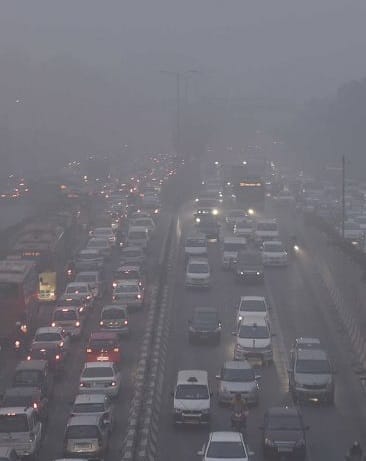Last Updated on August 10, 2021 11:40 am by INDIAN AWAAZ
India says, report a clarion call for developed countries to undertake immediate steps

WEB DESK
A UN scientific report has warned that human activity is changing the climate in unprecedented and irreversible ways.
The United Nation’s Inter-governmental Panel on Climate Change (IPCC), of which India is one of the 195 members, released its sixth assessment report yesterday. The landmark study warned of increasingly extreme heatwaves, droughts and flooding, and a key temperature limit being broken in just over a decade. The report said, Earth’s average surface temperature is projected to hit 1.5 or 1.6 degrees Celsius above preindustrial levels at around 2030, no matter what trajectory greenhouse gas emissions take in the meantime.
United Nations’ Secretary General Antonio Guterres called the IPCC’s assessment, the most detailed review of climate science ever conducted. He called the findings a code red for humanity, adding that the alarm bells are deafening, and the evidence is irrefutable.
In a statement, Mr Guterres said, the report must sound a death knell for coal and fossil fuels, before they destroy our planet. He said, countries should also end all new fossil fuel exploration and production and shift fossil fuel subsidies into renewable energy.
The report is the most comprehensive assessment from the IPCC since 2013 and provides the strongest case yet for human-caused global warming, saying it’s unequivocal that human influence has warmed the atmosphere, ocean and land. Its release comes less than three months before a key climate summit in Glasgow, known as COP26.

UN Chief said, greenhouse gas emissions from fossil fuel burning and deforestation are choking our planet and putting billions of people at immediate risk. He called upon world leaders to ensure the COP26 climate summit in November leads to ramped up emissions cuts and finance to countries already dealing with the fallout from global heating. He said, the report makes it clear that there is no time for delay and no room for excuses.
India has welcomed the Intergovernmental Panel on Climate Change (IPCC) Working Group 1 contribution to the Sixth Assessment Report — “Climate Change 2021:The Physical Science”. The assessment report was released by the IPCC yesterday. Several Indian Scientists have contributed in the preparation of this report. Environment Minister Bhupendra Yadav in a series of tweets said that the report is a clarion call for the developed countries to undertake immediate, deep emission cuts and decarbonisation of their economies.
He said, under the visionary leadership of Prime Minister Narendra Modi, India has taken numerous steps to tackle the global problem of climate change and is well on the path of decoupling its emissions from economic growth.
India noted that the climate change is impacting the South Asian Monsoons. The report brought out that the monsoon rainfall is expected to intensify in all ranges of the projected scenarios. India also noted that the rising temperature will lead to increased frequency and intensity of extreme events including heat waves and heavy rainfall. The report also said, the greenhouse gas (GHG) warming is assessed to be partially offset by aerosol cooling by almost 30 per cent.

India’s cumulative and per capita current emissions are significantly low and far less than its fair share of global carbon budget.
India has taken tremendous actions under the leadership of Prime Minister Narendra Modi to tackle the global collective action problem of climate change by taking several initiatives including, setting up of International Solar Alliance, Coalition for Disaster Resilient Infrastructure, raising the domestic renewable energy target to 450 GW by 2030 and putting in place an ambitious National Hydrogen Mission and continuing efforts to decouple its emissions from economic growth. India’s actions to address global climate change are 2oC compliant and rated highly by several independent agencies of the world.
Developed Countries have usurped far more than their fair share of the global carbon budget. Reaching net zero alone is not enough, as it is the cumulative emissions up to net zero that determine the temperature that is reached. This has been amply borne out in the IPCC report. It vindicates India’s position that historical cumulative emissions are the source of the climate crisis that the World faces today. The report notes that the Carbon dioxide has been and will continue to be the dominant cause of global warming under all greenhouse gas emissions scenarios.
